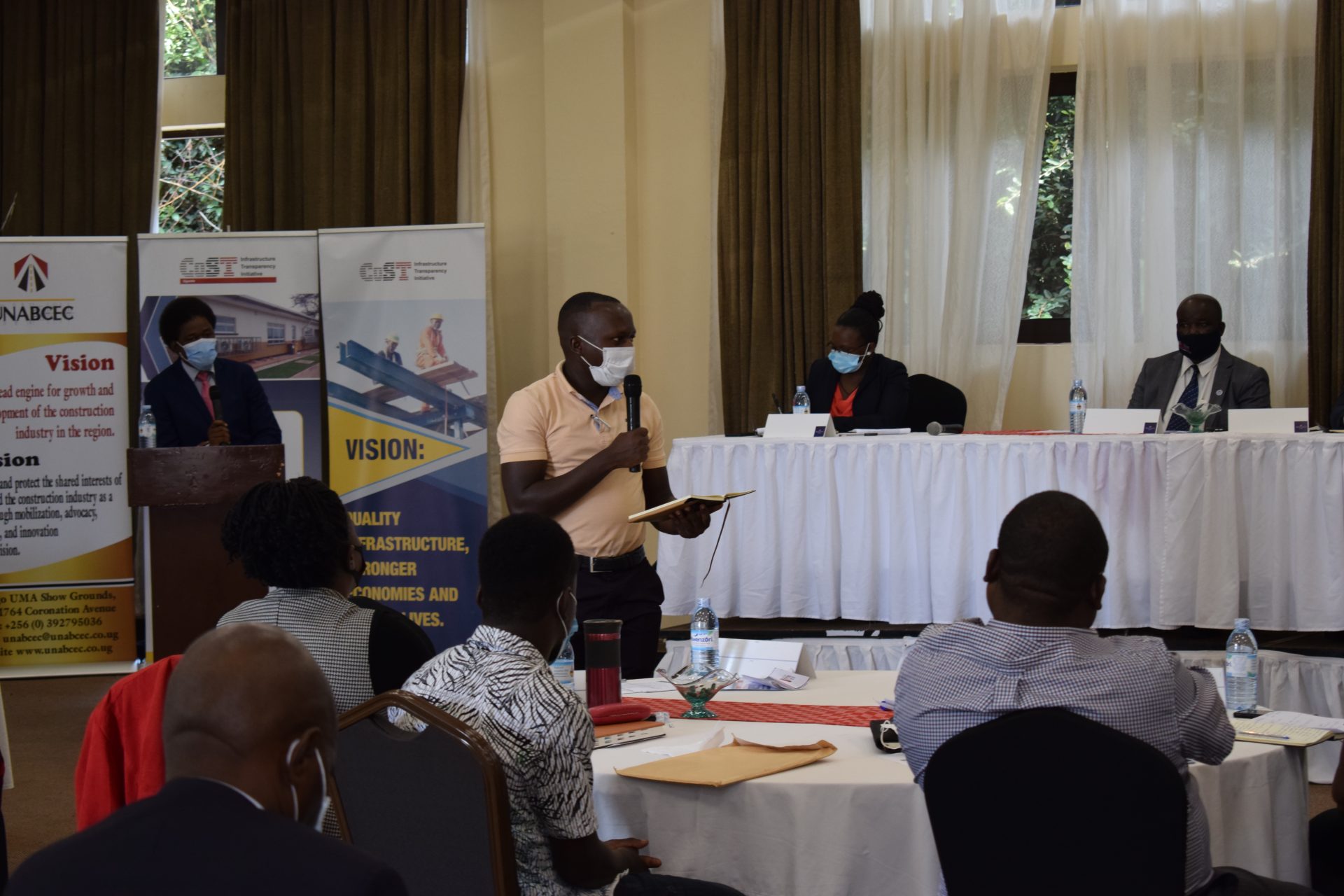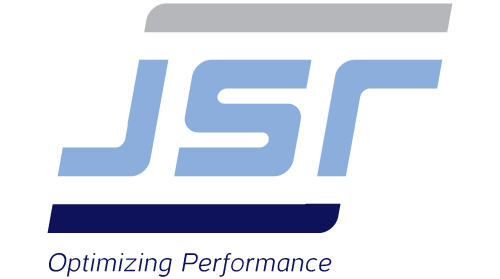
Engaging on integrity in public infrastructure procurement can be challenging, but, with the right stakeholders, approach, evidence and message, it is possible. The business stakeholders (contractors and consulting engineers) in Uganda were awash with apathy and doubt that any action could change the way procurement processes were ran.
Most often, businesses saw bribes as the only way to engage in procurement; CoST work through “promoting fair business practices in Uganda” has enabled us change this narrative and Businesses are beginning to see that business integrity is more beneficial to the private sector and that it saves money. Both government and the private sector distrusted each other and assumed rampant corruption within the sector. Getting the two together helped challenge the assumptions they held. Opening up these discussions to the government has enabled us to establish a sustainable platform on integrity issues and direct engagements between relevant authorities and the private sector. For example, following the inauguration of webinars on integrity[2] issues in public infrastructure delivery processes, stakeholders agreed that the webinars should be held on a quarterly basis coordinated by CoST Uganda, for the private sector to engage with duty bearers on integrity and policy issues in the sector.
A private sector member in the energy sector expressed concern that there was majorly limited or no local content in the energy sector and asked that CoST Uganda considers conducting focused analysis in the sector to promote transparency; “There is no transparency and openness in the Energy sector, this is one of the major sectors in Uganda where I think secrecy is at its height, one will Labour to learn and know existing opportunities in the sector, public officials in this sector do not publish available opportunities, CoST should put more efforts in advocating for transparency in this sector” expressed a private sector member who preferred to remain anonymous.
Florence Mambea, Executive Secretary, Uganda Association of Civil Engineering Consultants (UACE), notes that the private sector was faced with challenges related to understanding procurement procedures. They had been affected by the low levels of disclosure: in many instances, they did not fully engage in public infrastructure procurement processes due to a lack of information on available opportunities. She appreciates the work of CoST Uganda in promoting transparency and the high-level engagements where these issues were discussed. The BII action amplified their voices and created a platform for joint advocacy. Florence notes:
“Transparency is very important, it removes unnecessary questions and people understand and own public infrastructure projects even when they are consultants, as they are also citizens of Uganda and public infrastructure users. Disclosure addresses the myth on variations, the cost of infrastructure and their associated challenges. CoST events have empowered us to raise concerns and gather more expertise to engage with right stakeholders such as PPDA and Ministry of Finance. We now have direct linkages with these actors courtesy of CoST engagements. Talking of disclosure, when CoST assurance reports point out issues and are addressed, this gives the private sector hope that they are working with a responsive stakeholder. Indeed, things like information walls are very crucial and this should be the norm on all infrastructure projects to create awareness.
Using the multi-stakeholder approach and facilitating dialogue, confidence, trust-building and generation of consensus on actions and reforms to improve practice. Stakeholders committed to continuously engage on issues of fair business. For example, through the high level meetings, Government made commitments to change reservation schemes guidelines and guidelines for local content into regulations to enable compliance and performance monitoring. UNABCEC and UACE were also empowered to engage with Government directly and these made specific issue paper submissions on fairness in procurement during COVID-19 and demanded reforms on local content and timely payments.
Local Governments called on to advance fair business practices;
During stakeholder engagements organized by CoST Uganda under the Business Integrity Initiative, various concerns were raised on unfair business practices within Local Government entities, as well as Central Government. Through the engagements and from the disclosed data, it was revealed that procurement processes in Local Governments were associated with irregularities such as collusion and inadequate bid documents, which limited private sector participation in procurement. Through the conversations under the Business Integrity Initiative, a contractor noted that Local Governments did not have capacity to prepare bid documents and so were mostly were engaged in direct procurement. Often, bids submitted by the private sector would not be considered.
“However much we prepare good bids, Local Governments do not consider us, they usually go for direct procurement” said a contractor engaged in Local Governments Procurement processes at a CoST Uganda webinar. Local Governments were also not well informed of the reservation schemes and how they are applied.
“The private sector has neglected engaging in public infrastructure procurement in Local Government,, because of the factors associated with the inadequate capacity of Local Governments, poor quality of bid documents, direct procurement, collusion and corruption in procurement, a lack of compliance with PPDA guidelines, no concern for environmental protection and stakeholder engagement, in most cases, they would say, Local Government projects are small” noted Derrick Muzoora a Consulting Engineer at the CoST learning event in August 2020.
As a result of these concerns, the Government has taken action to engage in monitoring the compliance of Local Governments in the works procurement processes. On 15th September 2020, the PPDA revised the standard bidding document as a guideline for procurement of works under the Open Bidding for Local Governments. In the guidelines, PPDA stressed that Government revised the standard bidding document for the procurement of works under the open bidding methods with immediate effect.
An extract of the revised bidding document for Local Government reads, the revision incorporates environmental, social, Health and Safety requirements for the procurement of works, requirement of contract prices in Uganda shillings, clarification on the instruction for submission of joint ventures/Consortium and Associations and editorial enhancements. Bidders are required to include in their bids the details of their acceptance and compliance with Environmental, Social and Safety requirements and to adhere to them once the award is made to the provider throughout the execution of the contract. The guideline also introduced documents such as the Environmental and Social Performance Security, Code of Conduct for Contractor’s personnel, Environment and Social Management Plan and; Environmental, Social, Health and Safety Performance Declaration” Standardization of guidelines and procedures will provide for compliance, enhanced performance and safety of workers and site users. It will also provide for effective preparations of the private sector in procurement.
